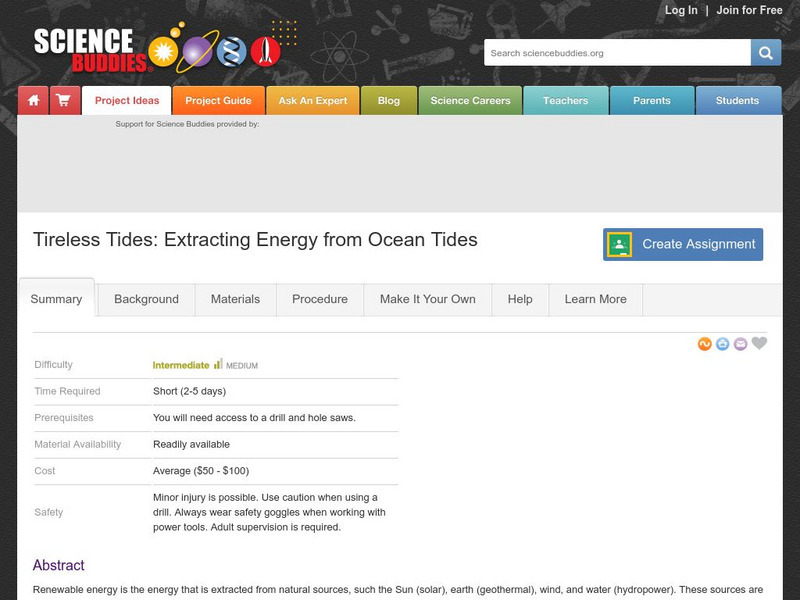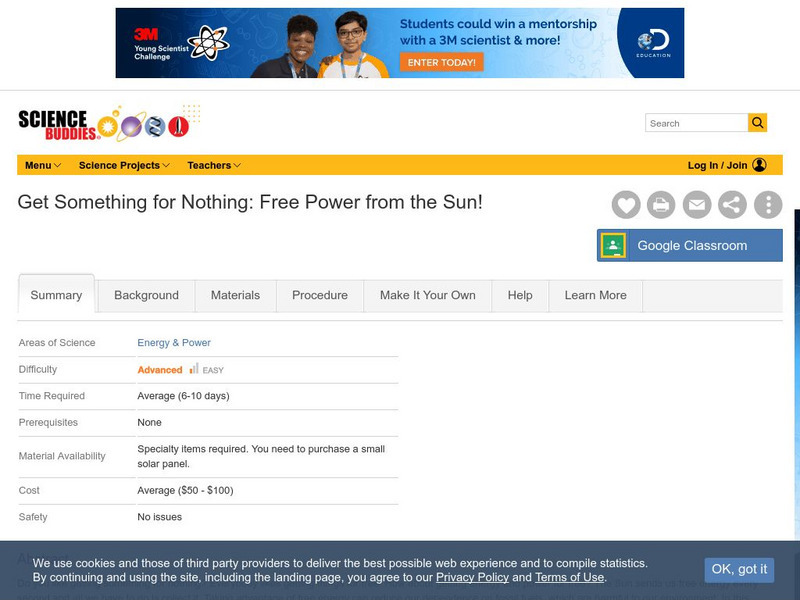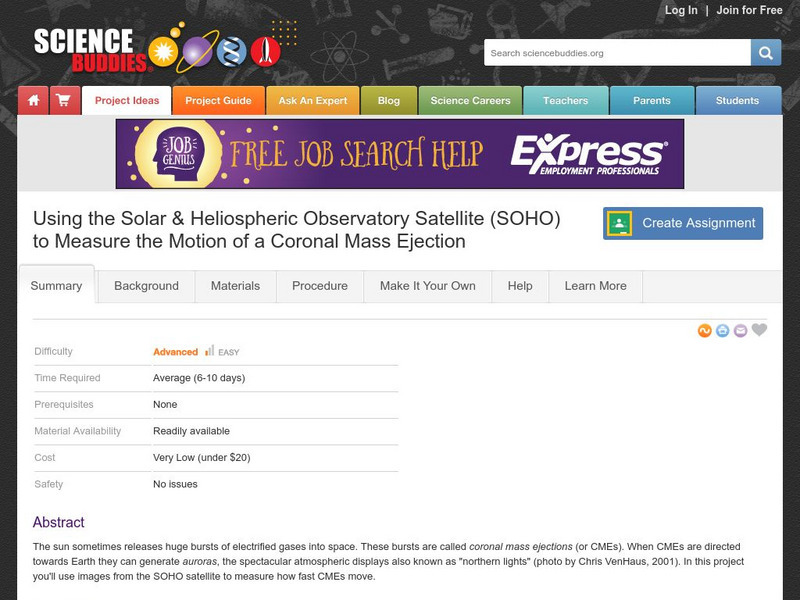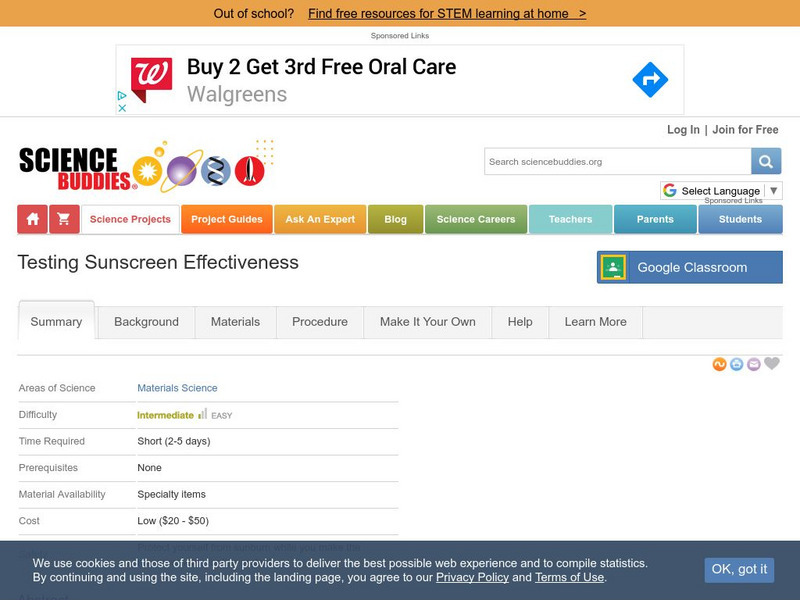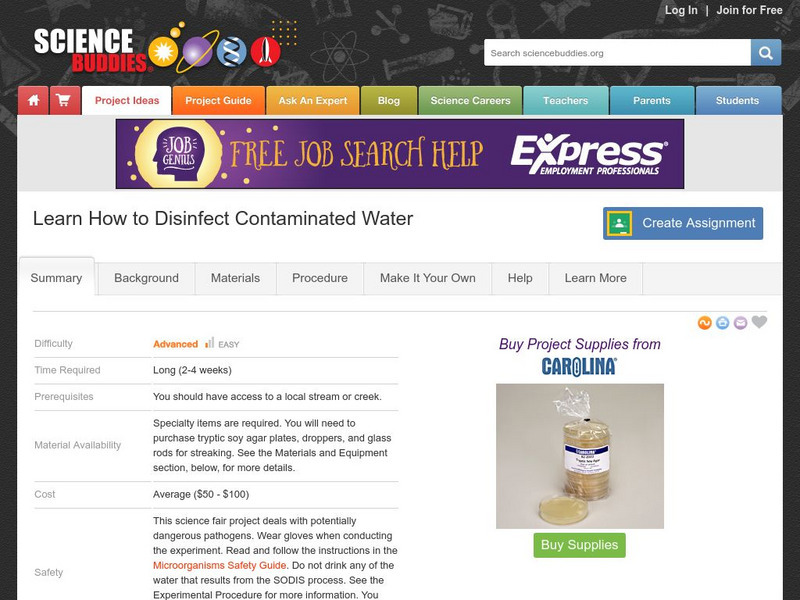Science Buddies
Science Buddies: Are You in Hot Water? Use Solar Energy to Heat Your Own Water
The goal of this science fair project is to build batch solar collectors from different colors of plastic bags and see which collector is the most efficient in heating water.
Science Buddies
Science Buddies: Project Ideas: Electronics and Solar Energy With a Robot Bug
In this science fair project, use the "frightened grasshopper" solar-powered toy to explore how solar energy is converted into kinetic energy. The Science Buddies project ideas are set up consistently beginning with an abstract,...
Science Buddies
Science Buddies: Cold Room? Heat It Up With a Homemade Solar Air Heater
Humans need food, water, and warm shelter to survive. But a lot of humans depend on fossil fuels to supply gas and electricity to heat our homes. But burning fossil fuels to create energy is harmful to the environment. In this science...
Other
California Energy Commission: Solar Energy Science Projects [Pdf]
Four science projects in which students learn how solar energy works and how thermal energy is transferred and utlized in a solar air heater, a solar water heater, a solar hot dog cooker, and a solar cell.
Science Buddies
Science Buddies: Now You're Cooking!
Here is a project that uses direct solar power, gathering the sun's rays for heating and sterilizing water or cooking. It's a low-cost technology that seems to have everything going for it. Use this project to find out if it works, and...
Science Buddies
Science Buddies: Solar Cell Power Output vs. Temperature
Solar cells provide a clean way of making electricity directly from sunlight. In this project you will build a simple circuit and experimental setup to investigate whether the power output of a solar cell changes with ambient temperature.
Other
California Energy Commission: Science Projects
A number of electrical, nuclear, solar, and wind science projects and energy activities are described on this page, with links to each activity.
Science Buddies
Science Buddies: Tireless Tides: Extracting Energy From Ocean Tides
Renewable energy is the energy that is extracted from natural sources, such the Sun (solar), earth (geothermal), wind, and water (hydropower). These sources are renewable because they can be replenished by the same natural sources within...
Science Buddies
Science Buddies: Get Something for Nothing: Free Power From the Sun!
Taking advantage of free energy can reduce our dependence on fossil fuels, which are harmful to our environment. In this science fair project, you will work with a solar panel, which is a collector of free energy, and investigate how...
Science Buddies
Science Buddies: Observatory Satellite Measures Motion of Coronal Mass Ejection
The sun sometimes releases huge bursts of electrified gases into space. These bursts are called coronal mass ejections (or CMEs). When CMEs are directed towards Earth they can generate auroras, the spectacular atmospheric displays also...
Science Buddies
Science Buddies: Leaves and Light
Leaves use sunlight to make food for the plant. Sunlight contains all of the colors of the rainbow, but are all of those colors used by the leaf? Can you find out if some colors of light are more important than others?
Science Buddies
Science Buddies: Testing Sunscreen Effectiveness
The goal of this project is to measure the effectiveness of different sunscreen products for blocking ultraviolet-A (UVB) and ultraviolet-B (UVB) rays from sunlight. This project shows you how to use a UV detector to measure rays of light.
Science Buddies
Science Buddies: Radiant Radish Seeds
We all know that plants need sunlight and water to grow big and tall. But did you know that inside seeds are baby plants, and that the fragile baby plant inside the seed needs to be protected? If you've ever had a sunburn, you also know...
Science Buddies
Science Buddies: Learn How to Disinfect Contaminated Water
Clean water is not a given everywhere in the world. In this science fair project, students will investigate whether sunlight could be used to disinfect contaminated water. The Science Buddies project ideas are set up consistently...

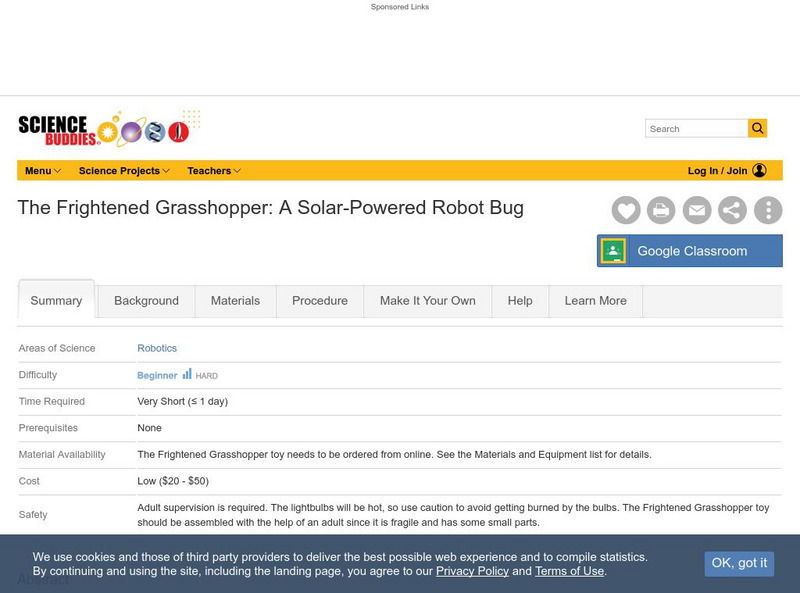

![California Energy Commission: Solar Energy Science Projects [Pdf] Lesson Plan California Energy Commission: Solar Energy Science Projects [Pdf] Lesson Plan](https://d15y2dacu3jp90.cloudfront.net/images/attachment_defaults/resource/large/FPO-knovation.png)



